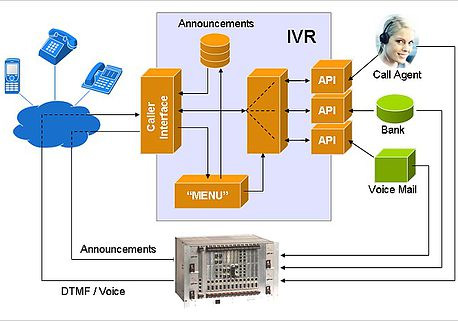IVR Testing Services
Interactive Voice Response (IVR) systems allow companies to manage high volumes of customer calls efficiently. They route inquiries, collect information for agents, and provide immediate answers.
Most IVR platforms, however, are only tested internally, which does not reflect local, in-country customer experiences. This type of testing can miss call quality issues and does not capture how real users navigate menus or interact with the system.
Global Telecom Testing offers local IVR testing in over 190 countries. Every test replicates the customer journey, verifying language, quality of service, menu trees, and operator interactions in real-world conditions.


Why Choose Our IVR Testing
- Language and Dialect
Local testers confirm greetings and prompts in the correct language and dialect. This makes sure customers can follow instructions and interact with the system effectively.
- Message Verification
Every prompt and translation is reviewed for clarity and accuracy. English and local language greetings are checked for consistency and coherence.
- Detection of QoS Issues
In-country testing reveals issues with call quality and reliability. Tests run on local networks simulate the real-world experience of your IVR.
- Operator/Agent Interactions
Testers act as customers to confirm that operators and agents respond at expected levels. They evaluate professionalism, language proficiency, and ability to handle customer needs.
Key Features
- Live testing in more than 190 countries
- Manual and automated IVR testing options
- Verification of menu trees, prompts, and DTMF responses
- Secret shopper evaluations for agents and operators
- Ongoing monitoring is available to maintain system health


API & Integrations
Our IVR testing services can integrate with APIs for businesses with advanced requirements. This allows direct reporting, seamless ticket generation, and faster troubleshooting across your existing systems.
How It Works
- Set up: Share the numbers, call flows, and testing requirements.
- Local Testing: Our in-country experts place real calls and follow your test plan.
- Evaluation: Results are logged with detailed feedback on language, quality, DTMF, and agent interaction.
- Reporting: Clear reports help your team act quickly to resolve issues.
Pricing & Trial
Choose from two flexible billing options: pay-as-you-go or monthly SLA invoicing. No contracts required.
Start with a complimentary trial test to see how our IVR testing works in real-world conditions.

Ensure your IVR Autonomy with GTT
Optimize the health of your IVR system for efficient and autonomous consumer navigation.
Explore more about IVR testing in our blog:
IVR Testing FAQs
IVR testing verifies that interactive voice response systems manage calls effectively, routing customers to the correct destination and resolving inquiries without errors. It identifies system issues before customers experience interruptions, improving satisfaction and overall call handling.
Through detailed evaluation of menu structures, DTMF prompts, and operator connections, IVR testing services uncover misrouted calls, confusing menus, or failed transfers. GTT’s global team replicates real customer behavior across multiple languages and regions. This makes it possible to optimize both automated and agent-assisted workflows.
This proactive approach strengthens reliability, reduces dropped calls, and creates smoother call journeys that meet user expectations.
IVR testing enhances accuracy by verifying that prompts, messages, and menu selections connect callers to the right resources. It also improves the caller experience through clear instructions, logical menu design, and reliable call flows across different environments.
An IVR tester follows the customer journey step by step, carefully checking details such as language clarity, DTMF tone detection, and menu navigation. This structured review helps organizations identify weak points, including confusing prompts, poor translations, or missing menu options. These issues may frustrate customers.
Testing helps reduce errors and also supports consistent, dependable communication across global operations. This ultimately leads to higher customer confidence and stronger long-term satisfaction.
IVR testing enhances user experience through confirmation that callers can move easily through menu systems and receive correct responses to their requests. It increases accuracy by eliminating misdirected calls and confusing menu paths.
During an IVR test, specialists simulate authentic user interactions to identify translation issues, faulty prompts, or broken call transfers. Both new and existing systems benefit from this process, as it refines functionality and addresses gaps that might impact callers.
The result is an intuitive and seamless experience where customers feel supported at every stage of the interaction. This consistent guidance creates greater confidence, builds more trust in the system, and strengthens loyalty toward the brand as a whole.
IVR testing services include load, stress, soak, spike, regression, and discovery tests. Each type targets a different aspect of overall system performance. These evaluations reveal weaknesses not only in daily usage but also during peak demand and unusual activity scenarios.
Load tests measure the number of calls the platform can handle under normal operating conditions. Stress tests examine breaking points when the system faces extreme levels of activity. Soak tests observe stability and performance across extended timeframes, while spike tests evaluate sudden surges in unpredictable traffic.
Regression tests confirm that updates or new features do not disrupt existing functionality. Discovery tests reveal unexpected vulnerabilities and hidden risks. Together, these approaches deliver a complete and actionable view of reliability, stability, and operational readiness for large-scale deployments.
IVR systems often encounter integration difficulties with CRMs, databases, or multilingual platforms, along with performance risks such as dropped calls or delayed responses. IVR testing services identify these challenges before they affect live callers.
Through simulation and analysis, an IVR tester examines end-to-end interactions to uncover interoperability issues, database mismatches, and network quality concerns. This process also highlights areas where latency or poor audio quality could disrupt user experience.
Once problems are located, tailored adjustments and optimizations can be applied. These refinements create a stronger and more consistent call flow. Testing mitigates risks that impact customer service while promoting efficiency across diverse global environments.
